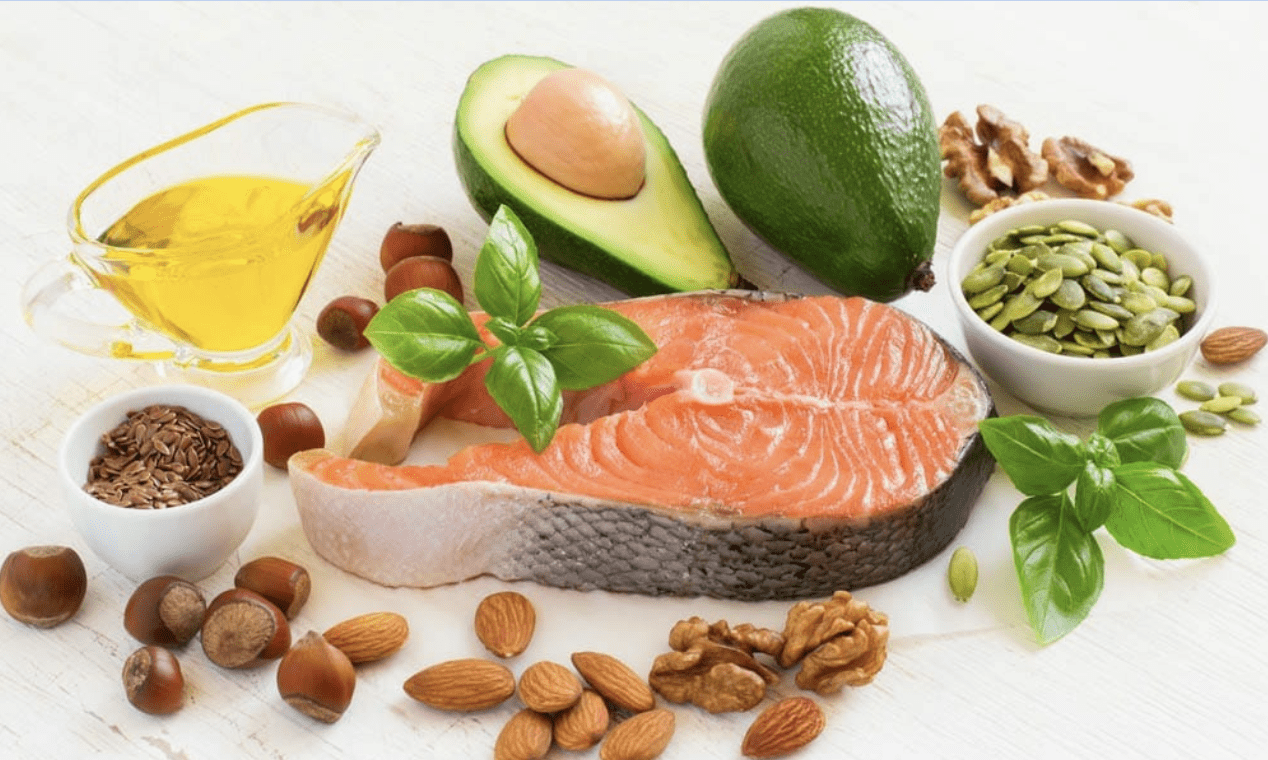Inflammation is a major potential cause of persistent concussion symptoms. The injury itself causes an increase in inflammatory markers and elevated levels of inflammation post-injury have been associated with concussion recovery. Much of the effects of inflammation can be mediated by diet and lifestyle. When it comes to impact on inflammation, the conversation surrounding good versus bad, and natural versus hydrogenated saturated fats, can be a confusing one.
The current thinking is that the acute post-meal inflammatory response associated with fat consumption is mediated by endotoxin, primarily derived from gut microflora. Endotoxin is found in animal-based saturated fats as well as produced by the gut. Others have suggested, however, that many foods contain endotoxin or related proinflammatory compounds that, upon absorption, directly stimulate inflammatory responses. Those foods with the most in vitro inflammatory activity included meats, cheeses, and dairy products.
The research also shows that, not all fats under all circumstances promote post-meal inflammation.
There is insufficient data to predict when and how specific fat sources will affect inflammatory status in people.
One possible explanation for the discrepancies in the literature is the variability in the types of microbes in the gastrointestinal tract of individuals being studied in these postprandial fat challenge studies. Recent advances in our understanding of how the gut microbiome adapts to changes in human ecology over time are particularly relevant in this context. It was suggested that the increasing incidence of allergic and metabolic disorders (e.g., obesity, type 2 diabetes) in immigrant populations as they adopt Western dietary patterns is linked to shifts in gut microbial populations. However, whether this can explain why some individuals are more sensitive to systemic inflammation upon a fat challenge is unknown.
So, here is the skinny on fats:
1) The impact of dietary fats is a complex issue that still needs more research to be fully understood. In terms of dietary fats, animal models don’t really translate well to humans. There also is an issue with which inflammatory marker is useful in tracking changes.
2) Eating more processed and refined fats (trans hydrogenated) fats has a detrimental effect in inflammation.
3) It is uncertain how dietary fats might affect inflammatory status, but current evidence suggests that the gut microbiome is important in this regard.
4) The research does suggest that saturated fat intake is NOT related to coronary artery disease however a “Standard American diet” has been. There are many other factors in this diet that promote inflammation, such as refined sugar, highly processed carbs, stress, and gut microbial imbalance. In this context saturated fats may “contribute” to an inflammatory state (via endotoxin and genetic mechanisms) but in of themselves are not “pro-inflammatory”.
5) This article also does a pretty good summing up the impact of detrimental impact of the insulin, carbs, and saturated fats together in the context of metabolic syndrome: http://www.cavemandoctor.com/2012/03/27/inflammation-which-foods-take-the-blame/.
6) Genetics are now showing that some people do better on a high fat diet while other don’t. Physiological individuality is a big consideration in diet.
About the Author:
Dr. Paul Hrkal is a board certified Naturopathic doctor and an expert in nutrition and supplemental treatments with a special interest in brain health, neurological disorders and sports medicine. Dr. Paul Hrkal is a member of the Complete Concussion Management medical advisory board. For more information on Concussions and Nutrition, click here.
Complete Concussion Management is a network of trained multidisciplinary healthcare practitioners that collaborate with physicians to co-manage concussion injuries, helping patients and athletes safely return to learn, work and play.
Looking for concussion assessments, treatment or rehabilitation? We’re here to help.

